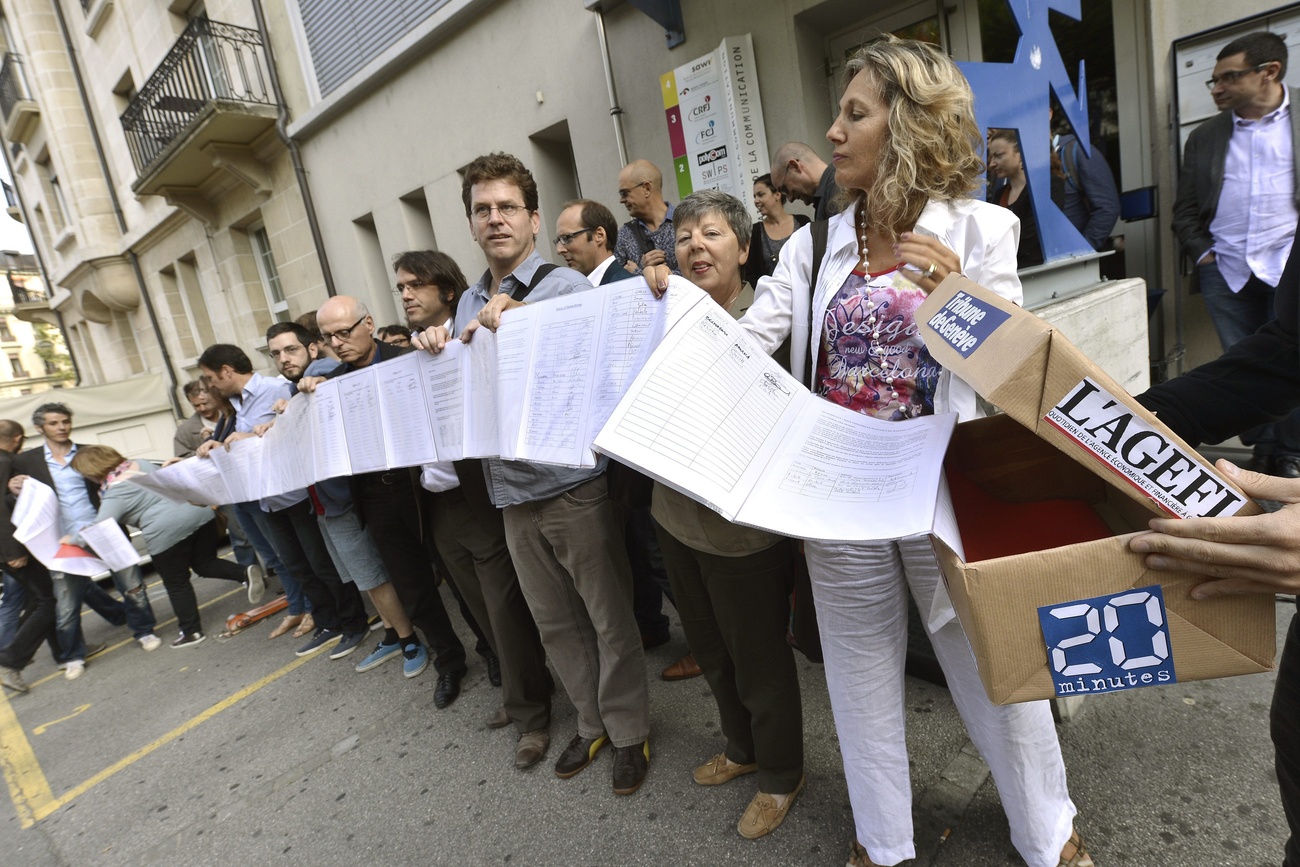
Petition lodged to slow the shelving of FM radio

Over 60,000 petitioners want the government to rethink plans to begin phasing out FM radio next year.
Private radio entrepreneur Roger Schawinski, who started the petition, said on Wednesday that the phasing out of very high frequency waves (VHF-FM) is contrary to the federal law guaranteeing free access to radio.
Campaigners also cited media expert Urs Saxer, who has said the phase-out means the Swiss Broadcasting Corporation (SBC, SWI swissinfo.ch’s parent organisation) won’t be able to fulfill its mandate of providing a radio service to the population.
In January the government announced it had reached an agreement with the radio industry on switching off analogue FM transmitters. The SBC is set to make the switch to digital audio broadcasting (DAB+) in mid-2022, with private stations to follow by January 2023.
This is earlier than planned: initially authorities had announced the switch to DAB+ for the end of 2024. Financial support is available to radio broadcasters for making the transition.

More
Switzerland to pull plug on FM radio by 2023
Slow changeover
A 2020 survey by GfK Switzerland showed that just 13% of the Swiss population still listened to FM radio; DAB+ use, on the other hand, increased by 22 percentage points between 2015 and 2020.
Wednesday’s petitioners say the move is still too fast. Half of all vehicles in Switzerland can’t receive DAB+, they say, and “millions” of radios would end up being dumped, which would be bad for the environment.
Norway was the first country in the world to end national broadcasts on FM in 2017. Elsewhere in Europe the timeline is mixed: for example, the UK plans to phase out FM by 2032, in Germany there is no fixed date.
Former government ministers are also in favour of the petitioners’ demand to slow the transition. Doris Leuthard, who was in charge of the communications ministry when the phase-out was announced in 2017, has since said she over-estimated the speed of society’s shift to digital radio.
In contrast to referendums and people’s initiatives (launched by collecting 50,000 and 100,000 signatures respectively), petitions don’t trigger a nationwide vote, and don’t require a formal answer by the government.

More
Petitions: seemingly toothless yet fundamental

In compliance with the JTI standards
More: SWI swissinfo.ch certified by the Journalism Trust Initiative



























You can find an overview of ongoing debates with our journalists here . Please join us!
If you want to start a conversation about a topic raised in this article or want to report factual errors, email us at english@swissinfo.ch.